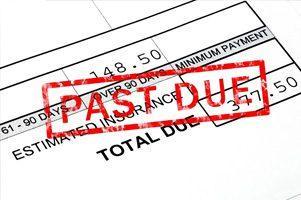Debt Collection in the Age of CFPB’s Regulation F – What Businesses Need to Know?

It’s been a while since Regulation F under the Debt Collection Rule by the Consumer Financial Protection Bureau (CFPB) came into effect. It denotes the first important update to the Fair Debt Collection Practices Act (FDCPA) in decades.
Regulation F is designed to modernize debt collection practices and improve borrower protection. It has considerable implications for businesses, especially those employing third-party debt collection agencies. Let’s discuss.

The Direct Impact on Debt Collectors
The CFPB regulations’ effects on consumers and the credit market imposes clear-cut, immediate compliance burdens for debt collection agencies in Houston and beyond. But first, take a look at this basic guide to debt collection for a better understanding of the whole concept.
A critical change is the defined limit on collection attempts. A collector can violate the FDCPA if they call a borrower more than 7 times within a 7-day period per debt, or within 7 days of having a conversation. This introduced a total overhaul of dialing technology and strategies to ensure compliance and careful record-keeping.

Modernizing Communication
The rule addresses the use of modern communication. It clarified that usually commercial debt collection agencies in Houston may use text and email messages. However, messages must be sent only when a clear, simple mechanism to opt out of future electronic communications is provided for borrowers.
For businesses, this means updating communication protocols to incorporate these mandatory opt-out methods. It also includes maintaining records of borrower consent and requests.

New Standards for Debt Validation
Perhaps the most universally impactful element is the revised requirement for the first debt validation notice.
Regulation F mandates a Model Validation Notice, a standardized form provided to borrowers from collection agency services. This form contains, among other things, the following:
- An itemization of the debt
- A tear-off portion for borrowers to easily dispute the debt
- Section for the borrower to request the creditor’s information
For businesses and creditors, this highlights the need for detailed, accurate, and readily available information. This way, business debt collection agencies can make sure the notice is completed accurately.
Indirect Risk for Businesses
As a business, you might be a first-party creditor not covered by the FDCPA directly, but you’re still affected by Regulation F. You have vendor oversight responsibilities.
Regulators expect businesses to monitor their third-party commercial collection agencies in Houston, TX, for compliance. If a collector violates a rule, it exposes the creditor to risk under laws prohibiting unfair or deceptive practices. Therefore, due diligence, updated vendor agreements, and constant monitoring are paramount. These are some of the impacts of regulations on debt collection practices.
The Debt Collection Rule by the CFPB has improved the standard for debt collection. At Nelson, Cooper & Ortiz, LLC, we’re constantly investing in training, technology, and rigorous compliance systems to ensure lawful debt collections.
Protect your business from legal issues and optimize debt recovery. Our expertise in Regulation F ensures you’re covered. Contact us today.
 Know More
Know More Know More
Know More Know More
Know More Know More
Know More